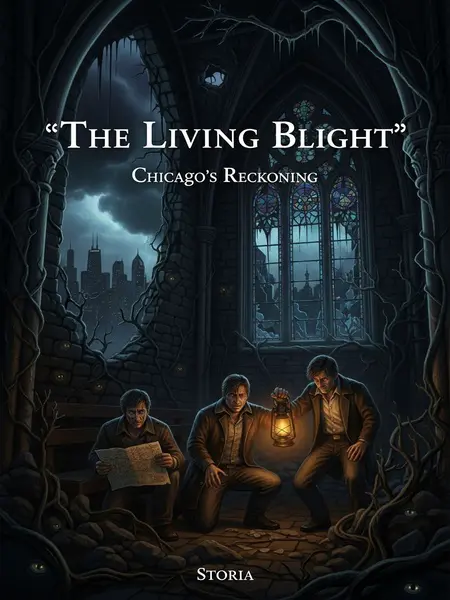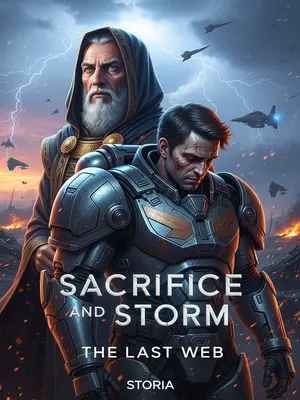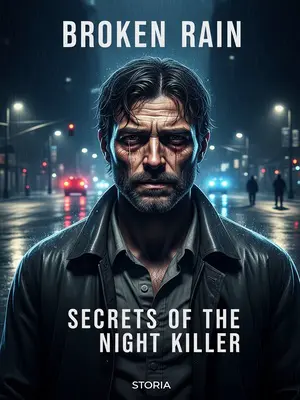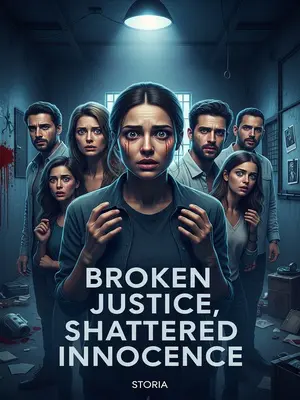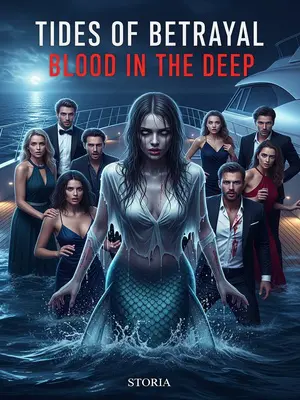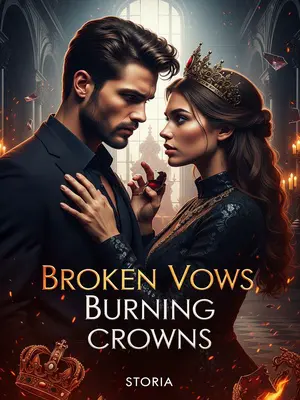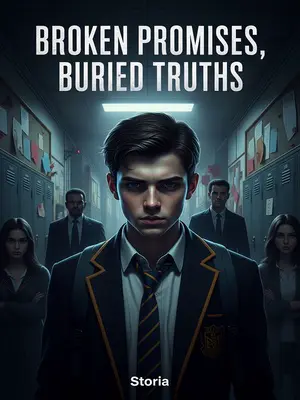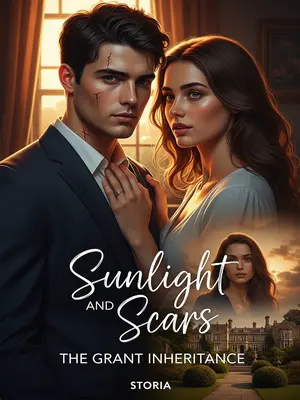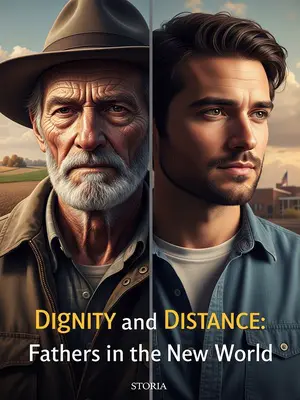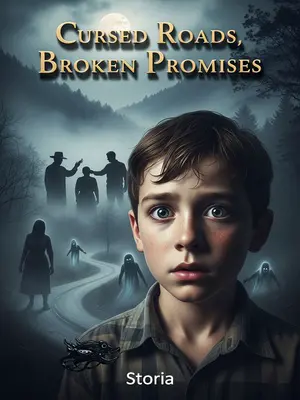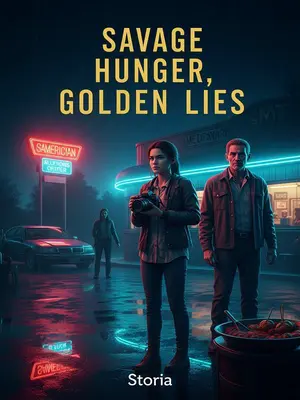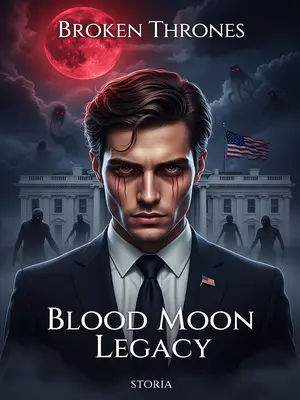Chapter 6: The Living Blight
The fog felt colder, thicker. I hugged my coat tighter, wishing I’d never left Chicago.
I realized what town this was—Willow Creek.
The realization hit me hard. My hands started to shake, and I had to force myself to keep moving.
Because last year, when Willow Creek was hit by locusts, I was the one in charge of distributing relief supplies.
I remembered the paperwork, the angry calls, the desperate pleas. I’d thought it was just another small-town problem—until now.
You know how it is in government—everybody skims.
Everybody takes their cut, from the top down. It’s how things work, or so I told myself.
Originally, we skimmed half the supplies, and the rest still helped folks.
I figured nobody’d notice a few boxes missing. There was always another crisis, another budget shortfall.
But then the National Guard mutinied—their rations had been embezzled.
The mayor called me in, voice tight. "Fix this," he said. "I don’t care how."
I thought, if the starving folks in Willow Creek died, so be it, but a Guard mutiny was trouble. So I gave all the Willow Creek relief to the Guard. Who knew I’d end up here?
Guilt gnawed at me, but I told myself it was just business. Now, standing here with the old man, I realized what it had cost.
The old man muttered, "So hard. The sickness took everyone, just me left. Why am I still here?"
His words faded into the wind. I had no answer, and I doubted he wanted one.
The dirt road led to a ruined chapel, bathed in the last light of sunset. The old man pushed open the door. "I’ll get you some food. It’s what the plague left me."
The chapel’s door creaked, hinges groaning. Inside, the air was colder, darkness thicker. I hesitated, heart hammering.
I nodded, put a foot on the threshold, hesitating at the gate.
My breath steamed, and I wiped my nose with my sleeve. Something about the place made me want to bolt, but hunger kept me rooted.
The wind picked up, colder now. My nose ran. I heard dragging inside, then a knife chopping on a board—like someone slicing meat. I rubbed my hands, puzzled—if there was no food, where’d the meat come from?
The chopping was rhythmic, almost soothing. I tried to believe it was just a rabbit or squirrel. Anything but what my mind whispered.
I slipped into the courtyard and saw the old man roasting a pile of meat over the fire. Next to him was an animal’s head.
The fire cast long shadows, the smell of roasting meat filling the air. My stomach growled, but my nerves jangled.
I moved closer—it was a raccoon’s head.
Its glassy eyes stared, teeth bared. I shuddered, but hunger kept me there.
The old man saw me and said, "Come on, warm up. I’ll roast some meat for you."
He gestured to a spot by the fire, his grin wide and empty. I sat, hands out to the flames, trying to ignore the dread gnawing at me.
I asked, "Is this raccoon meat?"
My voice cracked, but I tried to sound casual. Maybe if I acted normal, everything would be fine.
He nodded. "Yep, raccoon. Good eating."
He flipped the skewer, juices hissing in the flames. The smell was strong, not all bad.
Hearing it was raccoon, I felt a little better. Normally, I wouldn’t touch it, but hunger changes things.
I told myself it was just like pulled pork if I didn’t think too much. The old man handed me a piece, and I forced myself to chew.
"Town’s crawling with raccoons now. I’ll show you later—got a bunch in the side hall. No relief, but I got raccoons," he said, skewering more meat as he spoke.
He sounded almost proud, like the raccoons were a blessing. I nodded, chewing, the meat stringy but edible.
I nodded, watching him roast. After warming up, my nose cleared, but then a sharp, rotting stench hit me.
It was sharp, almost chemical, like something dead left in the sun. I gagged, covering my mouth.
I asked, "Has this meat gone bad?"
The question slipped out. The old man just shrugged.
He kept roasting, saying, "It’s cold, meat won’t spoil. Just cook it more, it’s fine."
He poked the fire, eyes on the flames. I tried to believe him, but the smell only got worse.
Still uneasy, I decided to check the side hall while he was busy. If the meat was rotten, I’d rather skip it.
I stood up, muttered about needing the bathroom. He barely noticed.
I went to the east side hall. It was dark, and the stench was even worse.
My eyes watered, and I breathed through my mouth. The darkness pressed in, making the space feel even smaller.
As my eyes adjusted, I saw a headless angel statue on the altar.
The wings were chipped, graffiti covered the base. It looked like it had always been there, watching over nothing.
But as I looked around, something startled me.
Shapes loomed in the shadows, motionless but threatening. I stepped back, heart pounding.
In the dim light, a dozen raccoon effigies leaned against the wall, staring at me.
Their eyes seemed to follow, glassy and unblinking. I shivered, telling myself they were just taxidermy.
I jumped, thinking they were statues. But up close, the raccoon heads weren’t ceramic—they were dried, rotting raccoon heads! Horrified, I looked at their bodies and saw something worse.
The fur was patchy, skin stretched tight. Some heads sewn on crooked, mouths open in silent screams.
Because the bodies of these 'statues' were made of human flesh!
It hit me. The limbs were too long, torsos too broad—these weren’t raccoons. They were people.
I realized—these weren’t statues, but corpses with raccoon heads sewn on!
My stomach lurched. I stumbled back, almost tripping over bones. The smell was overwhelming, thick and sweet.
What were these things?
My mind raced, searching for answers. Nothing made sense. I wanted to scream, but my throat closed up.
Terrified, I tried to run, only to see the old man behind me, holding a skewer of meat, grinning:
He stood in the doorway, blocking my escape, eyes wild. The skewer shook in his hand.
"Heh heh, that’s raccoon meat, that’s raccoon meat."
His voice was sing-song, almost childish. He waved the skewer at me, urging me to eat.
I asked, "What are these things?"
My voice cracked, but I forced the words out. The old man just smiled wider.
He pointed at the corpses. "That’s the Johnsons, that’s Mrs. Miller, those are the twins from down the street... I gotta stay alive, gotta wait for my wife. There’s nothing left, just their meat. I cut off their heads and sewed on raccoon heads. That way, they’re raccoons, and I’m not eating people—I’m eating raccoon meat."
He giggled, the sound echoing off the stone. His words made my skin crawl. I realized then—he’d lost his mind long ago.
So the old man was eating people... He’d snapped.
The truth was worse than anything I’d imagined. I backed away, hands shaking, bile rising in my throat.
"Raccoon meat, didn’t you want raccoon meat?"
He thrust the skewer at me, eyes pleading. I shoved him aside, desperate to get away.
He tried to hand me the meat. I shoved him away, bolted from the chapel without looking back.
I didn’t stop running till I hit the woods, lungs burning, heart pounding. I dropped the skewer in the mud and kept going, not daring to look back.
I didn’t want Ohio anymore. I ran back to Chicago that night.
The city, for all its danger, felt safer than anything out here. I swore I’d never leave again.
That’s what I found last year at the plague chapel in Willow Creek. I’d heard of cannibalism in disasters, but always assumed it meant eating the already dead—how could anyone do this?
The memory haunted me, but I never told a soul—until now. Even now, I smell the smoke, taste the fear.
"So, you’re the one who stole Willow Creek’s relief, starting the Chicago outbreak!" After my story, Eli jumped up, grabbing me by the neck.
Eli’s hands closed around my throat, face twisted with rage. I clawed at his fingers, gasping for air.
I coughed, shoving Eli away. "You blame me, but if you hadn’t helped skim the Guard’s rations, I wouldn’t have needed Willow Creek’s supplies. And Eli Sanders—Henry Sampson—was your guy, loyal only to you. You think he robbed graves without your say-so?"
I shoved him off, coughing hard. The truth spilled out, ugly and raw. We stared at each other, searching for someone else to blame.
Eli glared, then grinned darkly. He yanked a stick from the fire and stood. "Yeah, it was me. I got him to steal from the dead. Then, scared of an investigation, I lured him to the ruined chapel and got him killed. But so what? None of us are clean."
He jabbed the burning stick in the air, flames lighting his face. His eyes gleamed wild and desperate.
David, terrified, tried to escape behind the altar but tripped. Getting up, he saw it was the head of the plague statue.
The stone was cold, gritty. As he brushed away dirt, he found himself staring into its eyes.
The statue’s eyes stared at David in the firelight.
They seemed to glow, pupils tiny, just like the old woman’s.
Those eyes bulged, pupils pinpricks—like a bird’s.
A shiver ran through him. He scrambled back, heart racing.
"Ah!" David screamed. "Isn’t this ruined chapel the plague chapel of Willow Creek?"
His voice echoed, panic climbing with every word.
"What? Marcus, why’d you bring us to the plague chapel?" Eli, torch in hand, shouted at Marcus.
He swung the torch, flames flickering wildly. The wind battered the doors.
"I...I didn’t know this was the plague chapel. Anyway, it can’t be Willow Creek’s—that one burned down years ago!" Marcus stammered.
He backed away, hands raised. His voice was shaky, pleading.
"What?" David asked, stunned.
He stared at Marcus, disbelief on his face. The fire was dying, shadows swallowing the room.
"I...back then I ordered all the plague-stricken in the city sent to Willow Creek’s chapel, then burned them alive," Marcus said, voice trembling with guilt.
He looked at the floor, unable to meet their eyes. The confession hung heavy in the air.
David and Eli stared at Marcus, stunned into silence.
They stared at him, the truth settling over them like a shroud. Outside, the wind picked up.
"But...out here, there should only be the one plague chapel—Willow Creek’s," David whispered.
His words were barely audible, lost in the wind. The fire guttered, nearly out.
The three fell silent.
The only sound was the wind rattling the windows, and a faint, rhythmic thumping from outside.
After a long moment, Eli suddenly said, "Wait, do you hear that?"
He cocked his head, listening. The thumping grew louder, more insistent.
"Just now, I heard it too," David said.
He pressed his back to the wall, eyes wide. The sound was getting closer.
"Maybe...maybe it’s just the wind," Marcus’s voice trembled. But the sound crept closer—heavy, slow footsteps, shuffling over broken tile.
He tried to sound brave, but the words rang hollow. The footsteps echoed through the chapel, each one a drumbeat of doom.
"Quick, check if the chapel door’s closed!" Marcus shouted.
His voice cracked, but Eli was already moving, torch held high. The others watched him vanish into the dark.
Eli strode out of the nave, swallowed by shadows. His footsteps echoed, heading straight for the chapel door.
The wind slammed the door shut behind him, and for a moment, there was only silence. Then, a scream—high and terrified—split the night.
Those left inside heard Eli scream:
The sound bounced off the walls, pew to pew. David and Marcus froze, eyes glued to the doorway.
"He...Henry Sampson, are you human or ghost?!"
The words were strangled, barely more than a whisper. Then, nothing but the heavy footsteps.
But his scream was drowned out by the pounding of feet.
The sound was deafening now, a tidal wave of boots and bare feet pounding the floor. The fire flickered, monstrous shadows leaping on the walls.
"Is...is it Henry Sampson’s family come for revenge, or those plague victims you burned to death?"
David was nearly sobbing, but Marcus ignored him.
He clung to the altar, knuckles white, eyes locked on the darkness. The footsteps grew louder, closer.
He stared at the courtyard, where one shadow after another appeared.
Figures materialized in the firelight—faces burned, bodies twisted, eyes bulging like birds. They moved as one, silent and relentless.
In the faint glow, they saw faces burned beyond recognition.
The sight was too much. David whimpered, Marcus trembled, and the fire began to die.
No one knew when, but suddenly, fire erupted beside them…
Flames roared up, licking the walls, lighting up the faces of the dead. The chapel filled with heat and smoke, the air thick with the stench of burning flesh and old sins.
The flames illuminated Henry Sampson’s face. He wasn’t Henry Sampson or Eli Sanders anymore. Now he was known by a name that even the mayor feared: the Living Blight.
His eyes glowed with an unearthly light, skin marked by scars and burns. He raised his head, and behind him—thirty thousand strong—stood his silent, watchful army.
They wore the rags of the dead, faces twisted by pain and rage. Together, they moved as one, unstoppable and vengeful.
Those three traitors had gotten what was coming, but this wasn’t the end.
The flames ate the chapel, but the story wasn’t over. The Living Blight turned his gaze toward the horizon, where Chicago’s skyline shimmered in the distance, neon signs flickering through the smoke.
Through the rising flames, he saw his true destination.
The fire reflected in his eyes—a promise of reckoning. The wind carried the sound of drums, marching feet, and a city about to face its judgment.
Ahead, that great city—the heart of the country.
Chicago’s skyline loomed, wreathed in smoke and shadow. The Living Blight smiled, cold and determined.
He drew a deep breath, pulled his blade from his belt, and pointed it at the city—
The blade caught the firelight, gleaming like a warning. Behind him, the rebel dead raised their voices—not in a howl, but in a long, wordless wail that rolled across the prairie, promising that the story of betrayal and vengeance was only just beginning.
